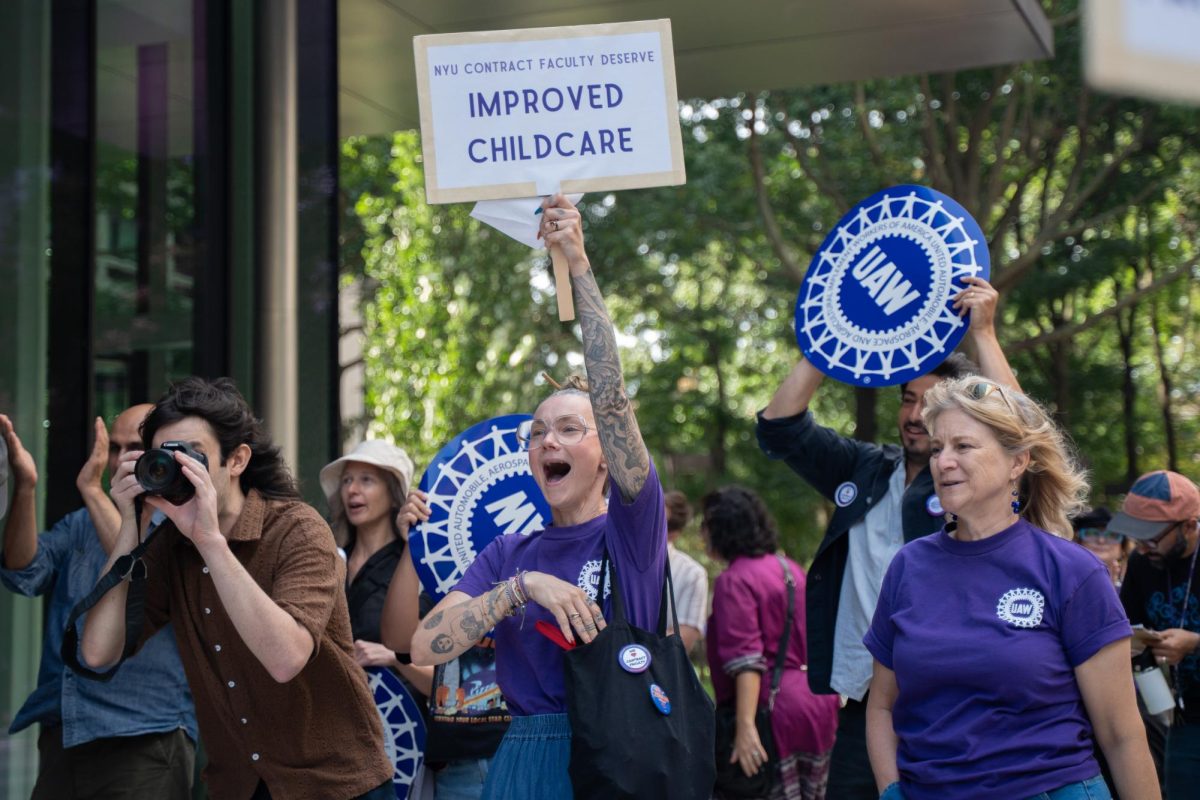Opinion: It’s time to expand reproductive health care on campus
As reproductive justice advocacy surges on college campuses, the NYU administration should take action.
File photo: NYU students walked out of classes for reproductive rights on Oct. 6 in Washington Square Park. (Kevin Wu for WSN)
October 14, 2022
Barnard College officials just announced the college will expand reproductive health care and begin offering abortion pills on campus next year. After advocacy from student organizations, including the Reproductive Justice Collective, Barnard has finally paid attention to the urgency for expanded reproductive health care on campus, and is introducing new training for officials to implement these changes. This decision is symbolic of how many colleges across the country are becoming central to the fight for reproductive justice in the wake of the U.S. Supreme Court’s decision to overturn Roe v. Wade.
It is imperative that NYU follows suit and expands reproductive health access on campus. For the most part, there has been a deafening silence from the NYU administration when it comes to reproductive justice, and the Dobbs decision which ruled that “the Constitution does not confer a right to abortion.”
While students are increasingly advocating for reproductive justice, the university itself has taken no action. NYU’s student government released a statement emphasizing its support for reproductive justice and commitment to expanding reproductive health care on campus on Oct. 6, the National Student Day of Action for Abortion Rights.
“We are committed to taking an intersectional lens in our approaches to advancing reproductive justice,” the statement reads. We recognize the intersectionality of race, gender, sex, class, and geography to the issues of access and choice.”
Young people are at the forefront of the fight for reproductive justice as the education and health care systems continue to fail them. Students walked out in a rally at Washington Square Park on Oct. 6, showing their support for reproductive justice on campus. Groups like the Graduate Student Action Network, Amnesty International at NYU and citywide youth coalitions like the Reproductive Justice Collective have been working tirelessly to advocate for reproductive justice at the university.
This youth advocacy also goes beyond NYU. Indiana University Bloomington sophomore and reproductive justice advocate Matisse Laufgraben said it is young people’s responsibility to promote reproductive freedom.
“When people who are teenagers and young adults with the capacity to get pregnant get told that their bodies don’t fully belong to themselves, it creates an ideal that is so damaging to physical and mental health, as well as sexual well-being,” Laufgraben said.
While abortion remains legal in New York state, there are still great disparities in accessing this health care. It is time for NYU’s administration to expand reproductive health care on campus to fill these gaps — particularly by providing abortion pills on campus free of charge.
Reproductive justice isn’t just abortion access; it is also offering birth control access, STI testing, comprehensive, pleasure-based sex education and an overall sex-positive and choice-empowering attitude across campus. As such, it is crucial for the university to also expand access to sexual health resources, allowing students to be empowered in their sexuality and make decisions that they feel are best for them.
The NYU administration must know that its student body is comprised of sexually empowered, autonomous individuals who have the agency to make their own choices — and deserve access to health care that supports these choices.
WSN’s Opinion section strives to publish ideas worth discussing. The views presented in the Opinion section are solely the views of the writer.
Contact Aarna Dixit at [email protected].





























































































































































